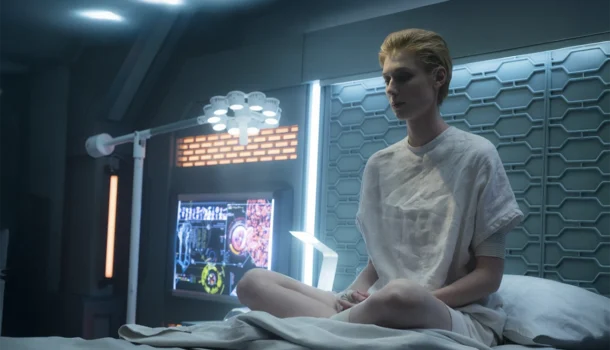When fear puts on the costume of science and the vastness of the cosmos reflects our moral frailty, what remains is not mere fiction — it is an autopsy of the present. “The Cloverfield Paradox” enacts this diagnosis through the lens of space-bound science fiction that refuses to simply emulate the genre’s icons. Julius Onah doesn’t merely travel roads paved by Kubrick, Tarkovsky, and Cameron; he infects them with the noise of the now, etching into this classic trajectory a discomfort rooted in the ethical and energetic collapse of the 21st century.
The narrative lays bare a world on the verge of blackout — not just due to literal energy shortages, but because of a symbolic exhaustion that weighs on every decision. At the heart of this labyrinth stands Ava Hamilton, whose personal grief echoes the disintegration of a planet. The space station she inhabits is no scientific sanctuary, but a minefield of nationalisms masquerading as cooperation. The fractures between crew members are not character flaws but reflections of a system unable to function without conflict. Volkov hallucinates like one who sees too much. Schmidt calculates like someone who has stopped feeling. Both, in their own ways, serve as harbingers of an unfolding disaster.
The screenplay, far from offering elegant solutions or groundbreaking ideas, embraces a corrosive approach: scientific progress, rather than redeeming, merely expands the reach of human error. The technical malfunctions are less terrifying than the ethical silences, the deliberate omissions, and the choices driven by desperation or vanity. It’s within this web of concealments that the film pulses, revealing how the race for salvation can, paradoxically, deepen the abyss.
Its connection to previous entries in the franchise is less a bridge than a fracture. The narrative disjointedness is deliberate, because the film doesn’t aim to fit — it seeks to disrupt. By abandoning any desire to weave a cohesive universe, “The Cloverfield Paradox” signals its more unsettling ambition: to explore chaos as its own language. Collapse is not the exception; it is the default. Fiction, then, does not lie in monsters or dimensional rifts — it lies in our belief that we still know what we’re doing.
And yet, there is a breath. Small, almost imperceptible, but undeniable. Ava’s persistence, born of pain, points toward something that transcends the logic of hollow sacrifice. Her journey suggests that real resistance might not be found in scientific handbooks, but in the refusal to accept destruction as fate. She does not save the world — she chooses to go on, even if that means carrying the fragments of an unrecognizable planet.
In this light, the paradox evoked by the title is not just physical or existential — it mirrors a civilizational deadlock. As long as we keep searching for answers in the far corners of the universe without first fixing the internal circuits that define us, we remain passengers aboard a drifting vessel, orbiting the wreckage of what we pretended not to destroy.
Film: The Cloverfield Paradox
Director: Julius Onah
Year: 2018
Genres: Sci-Fi/Horror/Thriller
Rating: 9/10

